
12 minute read
CONVERSATION: A THEATRE COMEDY LOCKDOWN
A THEATRE COMEDY LOCKDOWN
Mark Amery zooms with Kura Forrester, Chris Parker, Tom Sainsbury and Hayley Sproull about being both theatre and comedy writers.
Advertisement
Chris: Hayley! Tom: Hayley! Kura: Hayley! Chris: You’re supposed to be on the TV right now! Kura: Hang on! It mustn't be live! Tom: Why are you looking so good Hayley? Hayley: You’re fucking kidding me, I’m wearing a Jono and Ben hoodie that’s got cream down the front. You’re full of shit Tom. Hi Mark! Mark: This conversation is so made for print. Chris: “I’ve got cream all over, I’m a fucking wreck, Hi Mark!” Mark: Alright, I’m going to take off my video and let you guys talk. Hayley: Honestly, it's going to make me laugh knowing you are secretly there. Mark: Well, I’ll keep my microphone on… Tom: OK. We’ve got this statement here... Chris: Beautiful. I love it when Tom takes leadership. He’s going to do his classic “Let’s run this scene five times from the top really fast.” Hayley: We’re going to keep it concise because that’s what we’re all known for… real tight. Chris: We’re not going to wander. Tom: Good luck with that guys. Let’s begin. What is the relationship between playwriting, theatre and comedy for you from your beginnings to now? Who was the first one here to do a comedy festival show? Chris: Hayley was first. 2012 with Miss Fletcher Sings the Blues. Kura: Damn, girl! Hayley: Straight out of drama school. It was like, ‘well I guess I won’t be doing anything else anymore, so here’s an idea I’d already been developing in drama school.’ And the people at BATS were like, “Put it on in May for Comedy Fest”. So it was accidental. Tom: What I really like about you Hayley is that there was a stage where every single year you were doing a solo show, usually with a musical and a theatrical bent. Where are you at with that kind of high output?! Hayley: Two years no-show!
I GAVE GAGS A GO
Chris: But on every fucking TV show in New Zealand. Hayley: Other stuff took over, and my desire to make it work in with everything else wasn't strong enough. Tom: That first year – was cancelling a relief, or was it terrible? Hayley: It was beautiful. I was doing [TV show] Golden Boy and rather than high tension I was Cruisy Suzy. But as soon as I got into an audience – as you all know – it was like, immense jealousy. Tom: Have you done straight stand-up? Hayley: A few times, but mostly I’ve hidden behind my piano. Chris: It’s so crazy our relationship to Comedy Festival back in Wellington days, like out of drama school. It wasn't like Comedy Festival – it was more like weird brackets in which to put a show on. Now our relationship with that festival is really different. I didn't think of the comedy industry in any regard. Hayley: Back then it was just an excuse to have a show. Chris: In terms of the comedy industry the rules are laid out with that traditional form. I think a lot of us have struggled to exist inside of those; if you’re not doing The Classic, the pub gigs, haven't got a seven-minute tight set, you’re not in comedy. I think for a lot of creatives like us, who have a different strategy or outcome goal, it's hard to keep up with that pace. Hayley: Yeah, I think I’ve made at this point, either collaborating with people like yourself Chris or solo, maybe eight shows, and last year was the first time I performed at the Classic. So many people are there once if not twice a week. I felt like it was back to square one. Chris: Same. I tanked because I wasn’t used to performing there. I’m downstairs (the Basement Theatre) but in their eyes that's not a comedy venue, that's a theatre. Tom: I don’t know what it's like for you guys with a solo, but when I’m doing a theatre show I have no stress and I have complete faith that a story will come out; story leads the way. But when you’re doing comedy you’ve got nothing to start off with. With theatre you’ve got a premise to hang off.
Hayley: You say “I’m a comedian” and they say “Give us a joke” and you say “Well, I don’t really do... I can’t show you a scene of a play that I’ve written…” Tom: Why did you start doing traditional stand-up Ku, what was that? Kura: I started doing it in London because I had no outlet, I didn't know anyone. So I went along to open mic nights and I had to do five minutes. So I did the opening of Tiki Tour which was four characters, but I didn't care because nobody knew me. And then I did decide to give stand-up a go. Like I had a notebook with me and wrote jokes – because that’s what people were doing! But it didn't work out for me, that style. I gave gags a go. Hayley: It’s that box-ticking style – where you run in and say “hey hey hey guys how we feeling tonight!?” Chris: Camping, [one of three plays Sainsbury and Parker wrote together] was a transcendent moment for me and Tom where our power felt like our difference. It was like trying to write a play within a comedy festival context. Trying to ride both horses. While in other people’s minds the play may, at a guess, have felt like the next Bruce Mason… Tom: Do you think of all of us Chris your solo comedy shows are the most theatrical? Chris: No. I approach them like I’m approaching any show. I always think that if you just put a mic in a stand people will think it's a stand-up – and then you just write a theatre show. I’ve always worked like that. Camp Binch was like that. I worked with Jo Randerson, a theatre director. Iconique was the same. I knew the thematics and the story arc. Actually Iconique was different in one way: I was getting stand-up opportunities so I had to swallow my pride and as part of that write seven minutes. That was quite liberating. To prove that I could do that: have gear up my sleeves I could just pull out. But then I had to make a show around this material I couldn’t contextualise. It felt like making a burger the wrong way. Kura: And having to go out to those pubs on the North Shore and stuff. I’ve done lots of those little gigs where you go and do seven minutes... Tom: Those are so good to practice and get your things brushed up. But I can’t relax the entire day if I have a seven minute gig that night – your day’s been wasted. To me the stress is no different to doing an hour show. Hayley: When they give you such a limited time every second of that has to be punchy whereas when you’ve got the audience’s attention for an hour you can take them on more of a journey. Chris: Countering this, what do you three think are things theatre could learn from the comedy industry? Kura: Great question. Tom: I think actors can learn to be less precious. Comedians will come off saying “I just completely died. I’ll drink tonight and tomorrow will be a new day.” Hayley: Whereas as an actor you’re like ‘No! It's not ready!’ Tom: Comedians are like ‘I got one joke out of trialling ten minutes of jokes’. Chris: Comedy is created entirely with the audience in mind, so stand-ups test as much as they can on a crowd, whereas I feel like with theatre it's so much about what you’re trying to articulate. Comedians will test things out to the point where even on a bad night they will have a good hour. Also, when they talk about what their shows are about comedians are good at knocking it down to a tight sentence. Like Eli Matthewson: “My show this year is about me using my degree in classics for the first time.” And I’m like boom, you’ve sold it. Whereas in theatre it’s like: “We’re really interested in fragments of homosexual identity in this postinternet…” and, you’re like, “you’ve lost me.” Kura: I agree with Chris about comedians having a connection with their audience – it’s what they’re working for all the time.
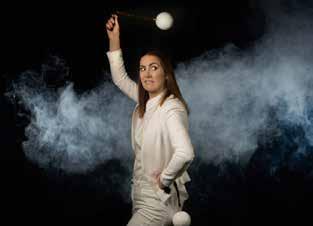
That magic thing between performer and audience happens more with comedy. Hayley: You’d notice the most Ku because in recent years you’ve done a lot more drama than perhaps the three of us. You switch quite easily. Kura: I do love a good drama... I was also going to say: ticket prices. Comedy is cheaper and seems more accessible, less hoity toity lah de dah. Chris: It’s a bit like with [play] Hudson and Halls. I rode that show through my shifting identities between theatremaker and comedian. My ear was always going for gags and that drove a lot of the show in a way. I was trying to eke more out of the audience every time – I was like a heroin addict – and at the same time director Sophie Roberts was like, “you need to learn the power of delivering your lines well every night.” Like it’s not about just constantly decorating the cake, but rather learning how to bake the cake every night in a way that feels fresh. That’s a power I feel actors have over comedians. Hayley: Tom, for you what came first: performance and comedy or playwriting and performing solo. When did it cross? Tom: It started with writing plays for other people first, and they were all very serious. And then Renee Lyons got me to act in a play
JUST BECAUSE WE’RE LAUGHING DOESN’T MEAN WE’RE TAKING THINGS LIGHTLY
PREVIOUS PAGE: Hauraki Horror by Thomas Sainsbury and Chris Parker, Basement Theatre, 2014. Image: Andi Crown Photography. LEFT: Vanilla Miraka by Hayley Sproull, Nuts and Bolts, 2016. Image: Mikel Taylor.
with her we wrote as a two-hander. And then I did all the Yeti plays with Natalie Medlock and Dan Musgrove, and that was part of the comedy festival. But I think it was getting involved in Snort and everyone was doing comedy that I thought, “I’ll give this more of a go.” And then it was me and Lana Walters –we both did Raw together and got into the finals. Then you go on the progression – so I’ve probably done a lot more Classic than you guys. What I like about comedians is their branding and business sense – they’re a lot more clued up. Then there’s the skills of the MC – which is so useful, because it can pay your rent for a month. Chris: Tom, as someone who has written – how many plays do you reckon? Tom: Dozens yes. Chris: What amount of your identity is as a playwright but has recently shifted towards comedian, and now fucking influencer! I mean, who do you write for now? Tom: I think they all feed each other, and that it’s good like that. I guess the stuff I do on Snapchat comes from doing those terrible monologues back when I was in my early 20s. And then stand-up makes you conscious of the gag rate, so the two blend together.
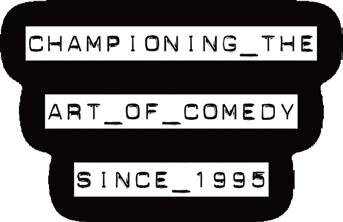

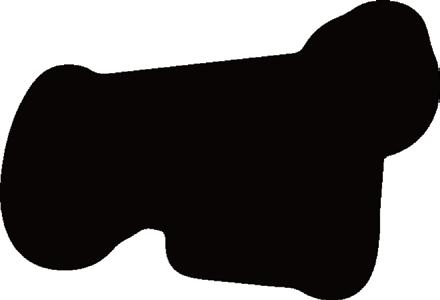
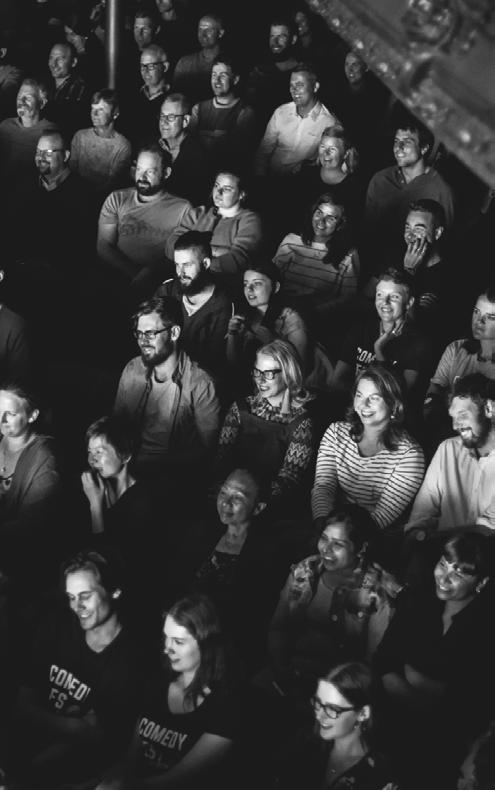
Hayley: That’s such a good note about what comedy can give theatre. I think I will always frame my solo shows as more theatre than stand-up, but it makes you feel more responsible for your gag rate and that’s always going to make your work better. To get rid of the shit that’s not funny and not working. Chris: Would you write another serious play Tom? Tom: Yes, absolutely, I love drama. Hayley: I know I said I didn’t want any more drama shit but Tom, if you want to write a real drama… Tom: Oh My God, imagine the four of us in a serious play! Chris: Me doing another dead fag. Hayley: I want to do that serious acting, like when they do it through the teeth. Tom: But you’re so good at pushing comedy through to tragedy. Hayley: That’s what some of my shows have been about – that we can use comedy to feel a bit sad. When I say I don’t want to do anything serious it doesn’t mean I don’t want to talk about things or not make things of any substance, it’s just that laughter will always be the way-in for me. Kura: Yes I would never write a drama, but I’m happy to do other people’s. But I bawled my eyes out in Camp Binch, Chris’s show. And I cried making my show Kura Shoulda Woulda – or I cried out of frustration I think. But I definitely know the bits in the show where I’m trying to ‘say a bit now’. Chris: Totally. Tom: Because you totally want to do a Nanette in seven minutes right?! That's your dream! Hayley: You have to go up and down right. Like that was me after Vanilla Miraka. I was, ‘cool, now I’m going to make the dumbest silliest gag heavy light thin show I can, and I am going to enjoy that just as much.’
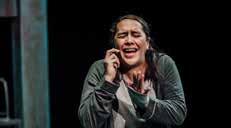
Tom: Two minutes to go, has anyone got a statement on the journey from theatre into comedy? Hayley: Tom, you start. Tom: I’m so glad I have married them both and I would never want to go one or the other. I feel they both feed into each other. Kura: Yeah I agree. I think when people ask what is the difference I think there is none. I love live; both are alive. Chris: Let’s just go until we get cut off – I would say mine is that there is no hard and fast rule as to how it works. We’re so accustomed to seeing everything in a binary way – like you either exist in the Basement or the Classic, but it’s like Ku is saying. They can inform each other and they can exist in each other's spaces. Hayley: Agreed. I tautoko all of the thoughts, just beautiful. I will never pick a side and they will always be blurred. Chris: I kind of feel a traitor to both industries in a way. Hayley: Yeah, same. Chris: I’ll snitch to comedy about theatre, and I’ll snitch to theatre about comedy. Like all the time.
Thomas Sainsbury appeared as Bruce Mason on the cover of Playmarket Annual #41 in 2008 (a forerunner of his Snapchat work). Hayley Sproull appeared on the cover issue #48 with other theatremakers. Chris Parker and Kura Forrester appear on the cover this year for the first time.
ABOVE: Half of the Sky by Lennie James developed in collaboration with Bree Peters, Mark Mitchison, Max Palamo, Miriama McDowell, Sam Scott and Scotty Cotter, Massive Company. Image: Andi Crown Photography.









